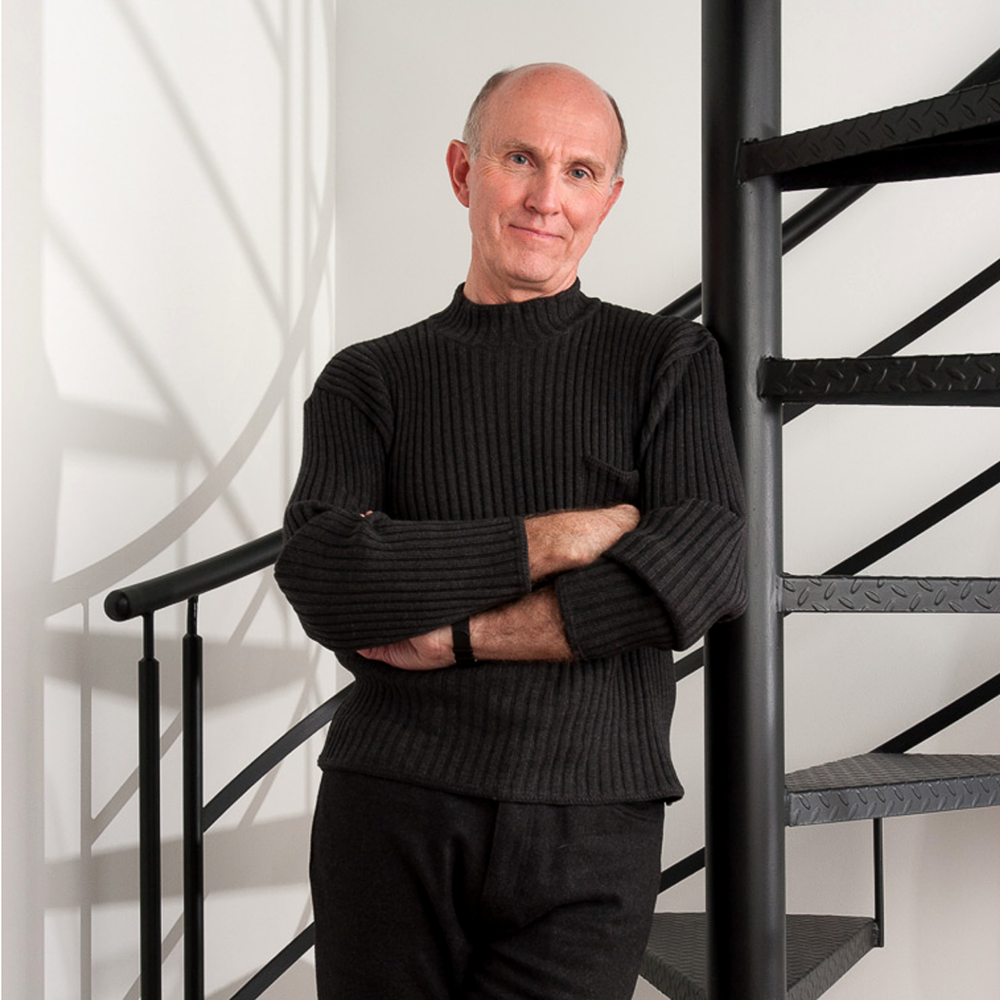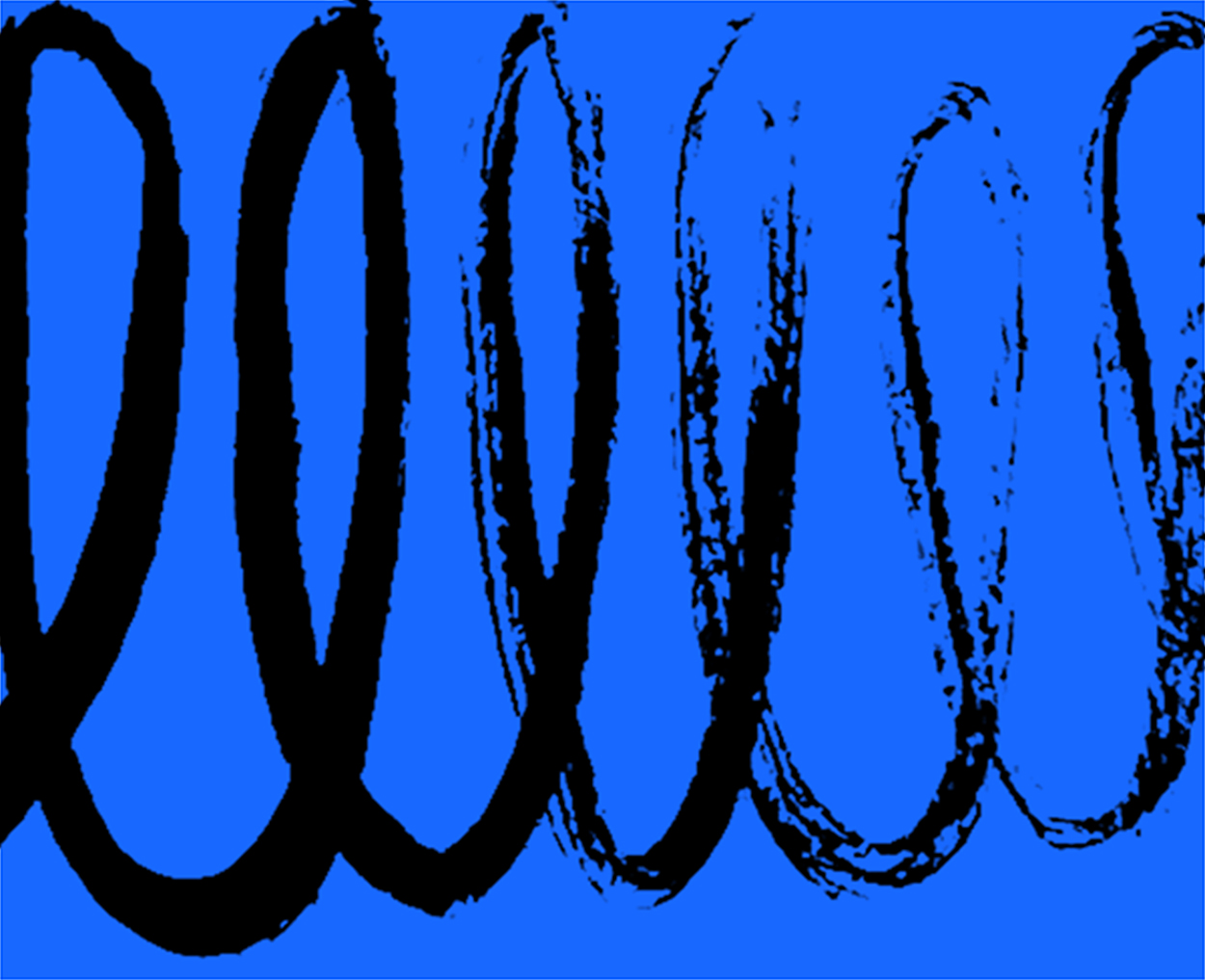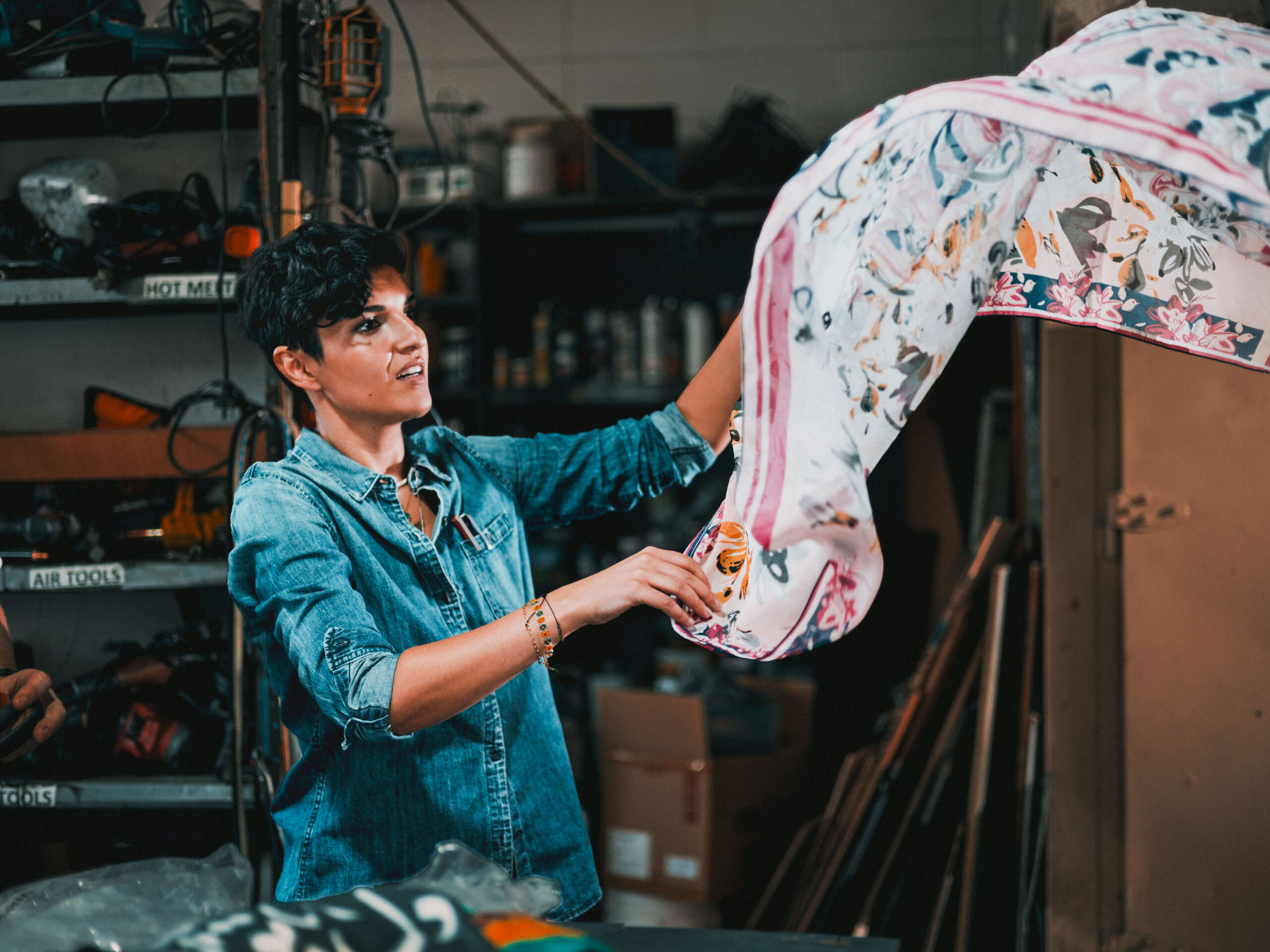
May 28, 2020
Remembering Jack Summerford
Jack Summerford died on December 5, 2019 of a lightening-fast bout with brain cancer. The loss elicited shocked surprise and then waves of fond memories of the legendary Texas designer. Here are some of mine.

Photo: © copyright Jim Olvera
I first met Jack in 1989 in San Antonio at the gathering where AIGA’s Texas chapter was born. Designers from all over our far-flung state were there along with luminaries like Milton Glaser and Ralph Caplan. Of course I knew his work—Jack was a legend—and in person he didn’t need an introduction; he looked just like his work. Simply dressed, almost ascetic in a black sweater and pants, fit, clean-shaven, not a hair out of place (actually, no hair at all). Crisp. Refined. Not a single extraneous detail. Then he smiled a slightly off-kilter smile and opened his mouth and there was a wit, a Jack-ness, that instantly told you the voice belonged to the guy that did that Helvetica poster.
I say I’d known of Jack before we ever met. The truth is I should’ve had one of those little WWJD? bracelets because in those early years I often checked my work by wondering What Would Jack Do? The question nearly always made me pare down whatever I was working on. And he designed his business with the same discerning minimalism he applied to his projects. Sharing a sun dappled studio on Dallas’s Fairmount Street with two illustrators, he had no partners, no staff. Consequently, he said, there were no compromises, no politics, no bullshit; just a singular focus on each client and the problem at hand. It was natural that when I opened Rigsby Design I went to sit with Jack in that beautiful studio and ask his advice about starting my business. It was simple, he said, a tiny handful of rules: Do good work. Don’t do bad work. Don’t work with clients you don’t believe in. And you probably don’t need a partner, he suggested, gently shoring up my courage to launch on my own. In the thirty years since then I’ve not heard better advice.

Jack’s work exemplifies clarity and coherence. It helped shape what we think of as graphic design today. He was a generalist, preferring to learn something about everything rather than specializing in any one thing. He created work firmly rooted in the tenets of modern design but always with his own twist. He conveyed ideas with an almost astringent economy of means and infused even straightforward messages with his unique brand of humor. And always, but always, Jack pushed himself to be original. In his essay “A Second Original Thought” he mused:
“The designer’s quest for originality, indeed anyone’s quest for originality, is endless and perhaps strewn with windmills, but that’s why we do what we do. It is not enough for us to place type, photos and illustrations in pleasing arrangements. We want more. We want original thoughts driving the choices.” His 2015 gem-of-a-book OBVIOUS? updated that notion, compressing a half century of design thinking into a canon of pithy guidelines like: “If you have a great idea, style doesn’t have a lot to say”, and “The dumb question is the one that should have been asked before dumb thing happened.”

Designers loved Jack because he perpetuated impeccable standards of thought and practice with a light, almost playful touch. He did it for decades: in his studio, in boardrooms, in college classrooms. He produced his book, OBVIOUS? and designed a leather-bound collection of drawings by the beloved Jack Unruh—two timelessly elegant works—in the last decade of a fifty-year career. Disciplined and consistent, he ran the Boston Marathon at age 60 and a total of thirteen marathons between ages 56 and 66. He was married to the same lovely Jane for 54 years. I’d lost touch with Jack for several years when a friend gave me his email address; I dropped a note and he responded immediately. Precisely nineteen minutes later I got a second message: “You’ve had my email for 19 minutes. So how long are you going to wait to write back? XO Jack.” Turned out it was less than sixty seconds.
There was an AIGA event in Houston late last October. I invited Jack down for the soirée, which promised to be a fabulous reunion of old friends from around the country. I really wanted him to come. He declined, citing a not very believable-sounding previous engagement. Sensing my hurt feelings he confessed the truth: Days earlier he had been diagnosed with a Stage IV glioblastoma—the worst kind of brain tumor—and had his hands full with doctors and whatnot just then. Maybe I could come to Dallas for a visit instead? I was nearly speechless. I stammered something about how sorry I was but Jack cut me right off. “Hey, I’m fine!” he said. “When people talk about death, everybody says they want to go fast when the time comes. Now it looks like I’ll get to. It’s a win.” And sure enough, a few weeks later he was gone.
It seems to me that Jack took his leave with the same unfussy efficiency he lived his life, his luminous mind and droll humor intact to the end. I guess now it seems there is nothing left to say but good-bye, Jack Summerford. Thank you so much for everything.
Observed
View all
Observed
By Lana Rigsby
Related Posts

Business
Courtney L. McCluney, PhD|Essays
Rest as reparations: reimagining how we invest in Black women entrepreneurs

Design Impact
Seher Anand|Essays
Food branding without borders: chai, culture, and the politics of packaging

Graphic Design
Sarah Gephart|Essays
A new alphabet for a shared lived experience

Arts + Culture
Nila Rezaei|Essays
“Dear mother, I made us a seat”: a Mother’s Day tribute to the women of Iran
Recent Posts
Minefields and maternity leave: why I fight a system that shuts out women and caregivers Candace Parker & Michael C. Bush on Purpose, Leadership and Meeting the MomentCourtney L. McCluney, PhD|Essays
Rest as reparations: reimagining how we invest in Black women entrepreneurs Food branding without borders: chai, culture, and the politics of packagingRelated Posts

Business
Courtney L. McCluney, PhD|Essays
Rest as reparations: reimagining how we invest in Black women entrepreneurs

Design Impact
Seher Anand|Essays
Food branding without borders: chai, culture, and the politics of packaging

Graphic Design
Sarah Gephart|Essays
A new alphabet for a shared lived experience

Arts + Culture
Nila Rezaei|Essays
